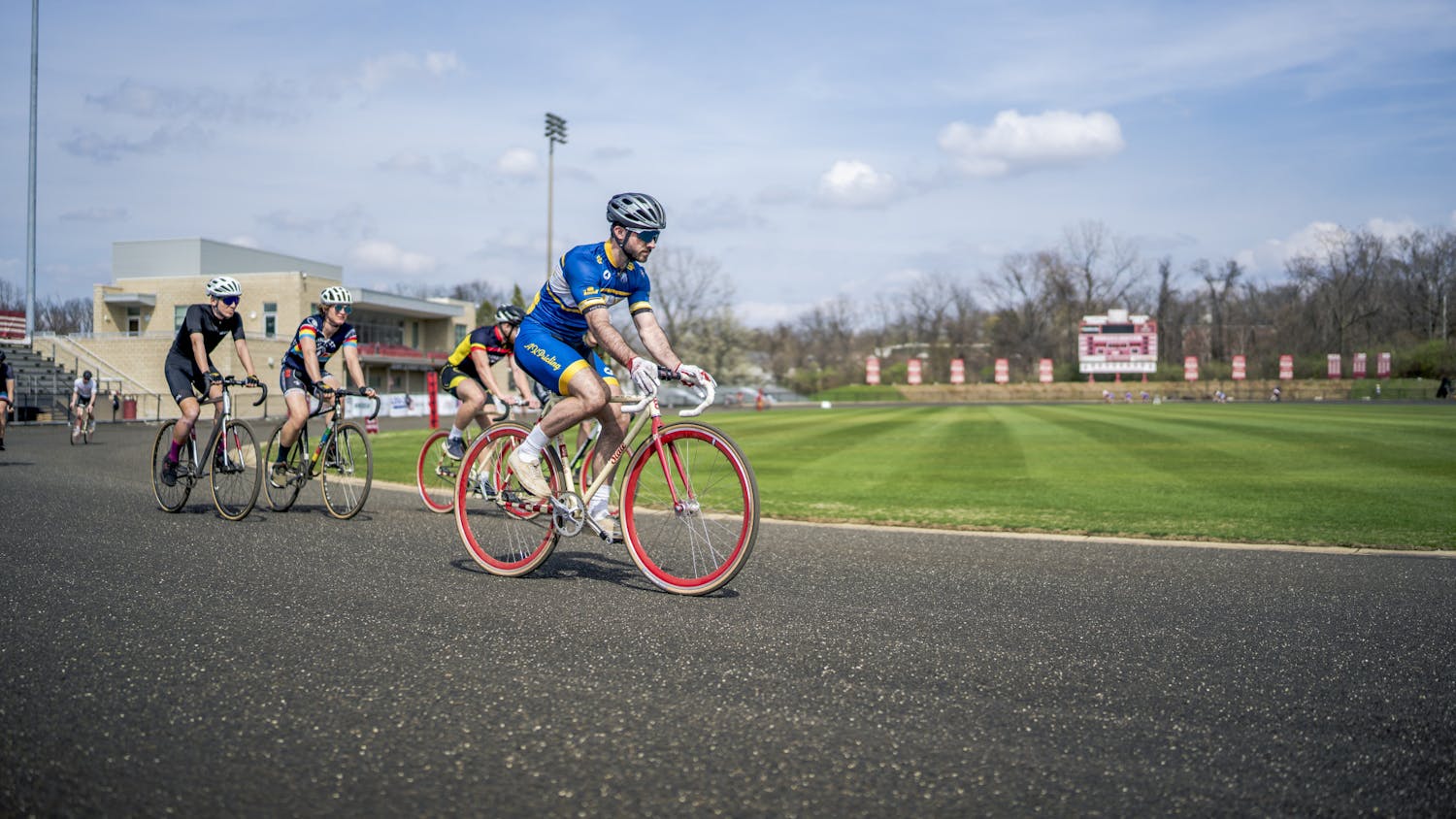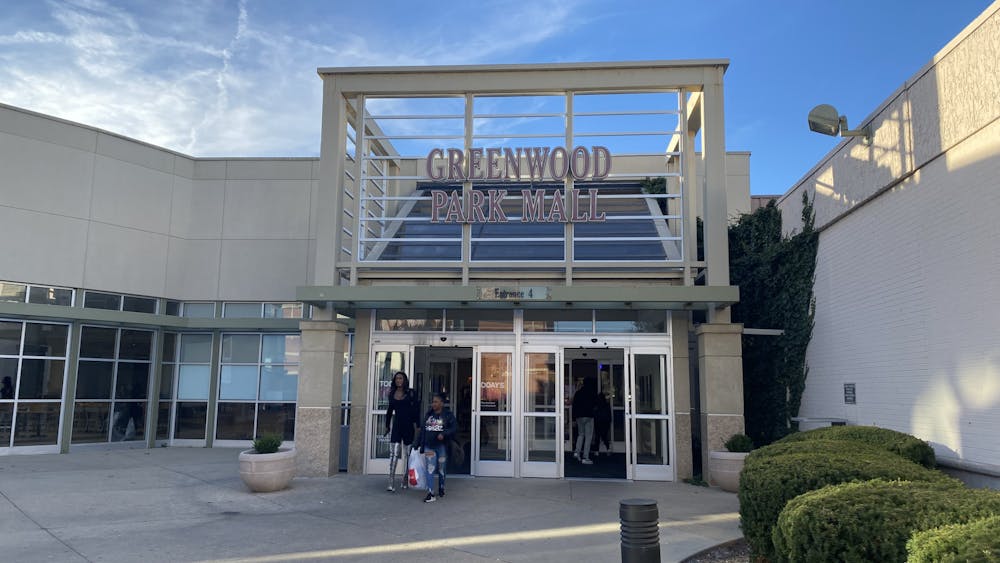Dacia Sachtjen’s grandparents want her to learn karate. They want her to
be able to kill a man with her bare hands all by herself.
Six months from now, Sachtjen, a junior and sergeant in the Army National Guard, will be deployed somewhere in Iraq.
She
doesn’t know where yet or for how long she’ll be there. She’s been told
to act as if she’s not leaving, but it’s hard to pretend nothing is
happening when you’re on your way to a war zone.
Sachtjen’s
grandparents are worried about her, but it’s not the insurgents they’re
concerned about — it’s all of the male soldiers she’ll be surrounded by
on base.
When Sachtjen arrives in Iraq, she’ll follow in the
footsteps of a new breed of veteran: the fobbit. Fobbits are soldiers
who never leave their forward operating base; they’re the postal clerks
and paralegals of the War on Terror.
Hollywood doesn’t make movies about fobbits.
Despite
the popular depiction of modern warfare in video games and films, in
reality the military is a big, slow-moving bureaucracy staffed by
thousands of people whose jobs keep them on base to keep the American
war machine moving.
For a society with an increasingly
inconsumable amount of media, there is a substantial lack of the fobbit
in our popular perception of the Iraq War.
“Honestly,” said SPEA
graduate student and former Marine Corps Sergeant Jeremy Degler, “I feel
that a squad of Marines going house to house, watching over a
neighborhood, isn’t going to sell as much as far as a news story goes in
terms of 20 people dying in a car bombing.”
Soldiers do not
roam outside the wire on their own similar to Matt Damon in “Green Zone”
or Jeremy Renner in “The Hurt Locker.” They don’t make their own
choices about how they spend their day, and unlike the video game series
“Call of Duty,” most soldiers don’t spend their days moving from
firefight to firefight.
Although they might never see combat,
the fobbits endure the same stress and pressures as their
combat-seasoned peers, but there is never that cathartic moment of
victory in battle.
Degler said he has a lot of hostility toward
the media for focusing on the horrors of war and not the day-to-day
life of a soldier. In the seven years since the U.S. invaded Iraq, only
4,427 U.S. military personnel have been killed.
Compared to the
more than 50,000 U.S. soldiers who died in Vietnam and the 418,500 who
died in World War II, the U.S. has had very few casualties for a war
that has gone on for almost a decade.
Even when combined with
the death toll from U.S. forces in Afghanistan, the total number of U.S.
casualties in the combined War on Terror is less than 10,000.
Eric
East was in Australia when 9/11 happened. He was among the first
soldiers on the ground in Afghanistan, and now, years later, he said he
thinks both the wars in Iraq and Afghanistan are unjustified. “I spent
seven years just researching the facts,” East said. “I’ve come to the
conclusion that these wars are holy crusades.”
East said reading information on the Internet influenced his thinking more than the time he spent in Afghanistan.
Unlike
their silver screen heroes, they were tasked with standing in guard
towers and getting shot at. If they did leave the wire, they built
schools or passed out teddy bears.
Those who left the wire to
fight, to go door to door looking for insurgents, found a war they
couldn’t rectify with what Hollywood had sold them. There were no great
battles, no beaches to storm.
For some, it’s as if nothing
changed about their lives except that at any minute that life could be
ended by a stray bullet or mortar round.
“We were fobbits,”
former Air Force Sergeant Mike Mojonnier said. “Just the stress from
that, having multiple mortar and rocket attacks a day, knowing that the
mission you’re doing is dangerous, knowing that being over there is
dangerous, and then on top of it, you have almost no way to relieve that
stress. Guys would just bottle it up and take it out on whoever,
whatever was next to them.”
Mojonnier worked in what’s called
“blue on blue” — he policed the soldiers on the base. When he got off
work, he went home and played “Halo.”
Despite the presence of
Xboxes and gyms, life on a Forward Operating Base (FOB) is not life in
the United States. Nobody notices this more than the women who serve
overseas.
“People figure hey, you’re deployed. It’s like Vegas,”
sophomore Sergeant Stephanie Tremblay said. “What happens here stays
here. So you never know what’s going to be lurking around that dark
corner.”
Along with the threat of sexual assault, soldiers deal
with constant petty crimes such as theft and driving under the
influence. Sometimes the pressure of living on the FOB is so great that
soldiers turn to suicide.
“You get a letter from home saying
your wife is divorcing you,” National Guard member and senior Kayla Neir
said. “And sometimes soldiers take their service rifle into the
port-a-john and kill themselves.”
Among all of the firefights,
the mortar rounds, the sexual assaults and the suicides, there are video
games and war movies. And in contrast to the fobbits, there are the
grunts.
“We didn’t play Xbox or anything because we lived in a
big warehouse with just rows of bunk beds,” said sophomore Tim Whitson,
who was deployed to Iraq with the 82nd Airborne. “But we would go there,
and someone who does live on the FOB would yell at you for putting your
hands in your pockets or wearing something you’re not supposed to wear.
That kind of raises the amount of spite that you have towards them.”
Whitson
spent most of his tour walking around Baghdad with night vision goggles
and bolt cutters, raiding the houses of suspected insurgents. He slept
on concrete floors with no electricity. They had to burn their bodily
waste because they had no running water. When he came back to the FOB,
it was like a completely different planet. Despite having to survive in
much rougher conditions than his fobbit counter parts, Whitson said he
misses doing what most people only see in the movies.
“When
you’re running through Baghdad with night vision goggles hunting
insurgents, there’s a cool factor to that,” Whitson said. “I miss that
sometimes.” Whitson was hit by a mortar round during his tour of duty.
He was on patrol, and he saw the first mortar round near his position.
“It
blew my ear drums,” Whitson said. “Just like in the video games, when
everything gets muffled and sounds far away. That’s exactly what it
sounded like.”
Soldiers called up from the reserves and the
National Guard entered the War on Terror with only hours of film and
video game experiences to tell them what modern war was.
The generation that enlisted after 9/11 grew up with “Saving Private Ryan,” “Band of Brothers,” “Halo” and “GoldenEye.”
When
they arrived overseas, many of those who served complained of boredom
and restlessness. The struggles they do face, the constant stress and
unrelenting boredom, lack the romance of the war stories from their
grandfathers’ generation.
“I was watching ‘Saving Private
Ryan,’” Mojonnier said. “And my buddy just looks at me and says, ‘That’s
the war I want to fight.’”
The 'Fobbit': Life on base
Get stories like this in your inbox
Subscribe





